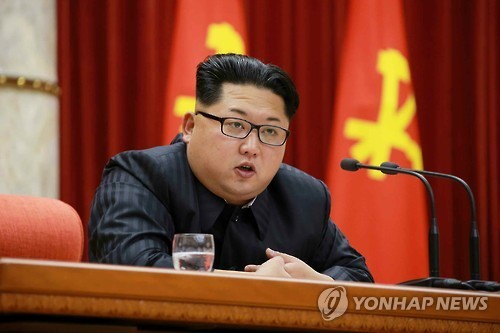Assassination of NK leader's brother raises questions about regime stability: US experts
By KH디지털2Published : Feb. 15, 2017 - 09:21
The apparent assassination of the half brother of North Korean leader Kim Jong-un raises questions about the stability of the young leader's grip on power, US experts said Tuesday.
Kim Jong-nam, the 45-year-old eldest son of late North Korean leader Kim Jong-il, who has a different mother from the current leader, was killed after being attacked with poison at a Kuala Lumpur airport Monday.
A source familiar with the case said agents of the Reconnaissance General Bureau, North Korea's spy agency, have carried out the assassination by taking advantage of a security loophole created between Kim's body guards and Malaysian police at the Malaysian airport.

The killing is the latest in a series of purges leader Kim has carried out since taking office five years ago.
"I think it speaks to the question of how much resistance there is inside the country," Victor Cha, a Georgetown University professor and Korea chair at the Center for Strategic and International Studies, told Yonhap News Agency.
"I know that there's a lot of people who say five years in, the transition is stable. But he sacks the minister of state security last month and now kills the elder brother. Doesn't look so stable to me," Cha said.
Mark Tokola, a former senior diplomat and currently vice president of the Korea Economic Institute of America, said it's obvious that the North's leader ordered the killing, given that North Korean agents have reportedly tried to assassinate Kim Jong-nam in the past.
"In looking for a motive for the murder, there is a Latin phrase for it, "Qui bono?" ("Who benefits?"). There are very few that would directly benefit from Kim Jong-nam's death other than his half-brother in Pyongyang," Tokola said in an analysis piece.
Tokola also said the motivation could be a "a continuing sense of paranoia on the part of Kim Jong-un."
"Whether or not Kim Jong-nam was actively plotting against Kim Jong-un (and there is scant evidence of that), he provided an alternative for North Koreans who would want to depose Kim Jong-un," the expert said. "Kim Jong-nam has been fairly quiet in his exile, but was quoted in the Japanese press in 2010 as saying he opposed dynastic succession in North Korea."
Tokola also noted the North's leader has been eliminating those perceived as threats to him, including the brutal killing of his uncle Jang Song-thaek in 2013.
The killing could also be interpreted as another North Korean affront to China, he said.
"Kim Jong-nam has been living mostly in Macau, certainly under Chinese protection, and was quoted in 2012 as saying that North Korea needed 'Chinese-style economic reform,'" Tokola said.
"Some commentators have theorized that the government of China was keeping Kim Jong-nam in reserve with the option of helping him assume power if Kim Jong-un fell in the future. Jang Sung-taek was too close to China for Kim Jong-un's taste; the same may have been true of Kim Jong-nam," he said. (Yonhap)








![[KH Explains] How should Korea adjust its trade defenses against Chinese EVs?](http://res.heraldm.com/phpwas/restmb_idxmake.php?idx=644&simg=/content/image/2024/04/15/20240415050562_0.jpg&u=20240415144419)










![[Today’s K-pop] Stray Kids to return soon: report](http://res.heraldm.com/phpwas/restmb_idxmake.php?idx=642&simg=/content/image/2024/04/16/20240416050713_0.jpg&u=)